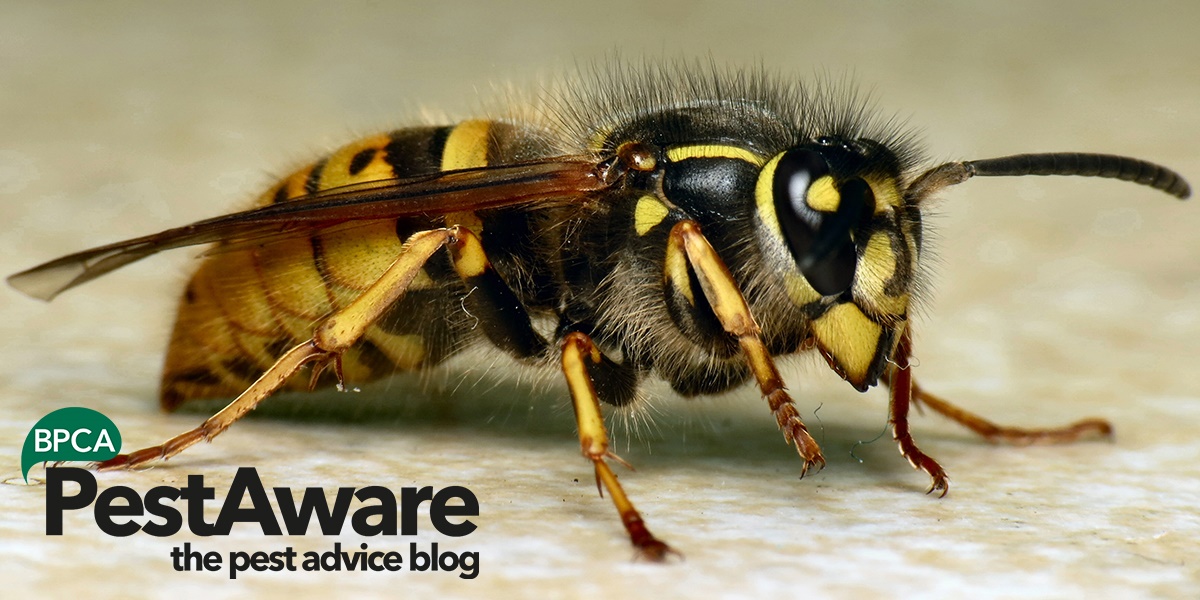Press release | PestAware
The British Pest Control Association (BPCA) is urging the public to be on their guard for wasps as they anticipate a significant increase in prevalence this summer.
This season could be a bumper year as wasp populations traditionally rise and fall in a two-year pattern – with BPCA records showing the UK was inundated in 2016, followed by a distinct lull in numbers in 2017.

But while we can expect an increase in numbers this year, a BPCA member expert says changes in wasp activities are making it a challenge to accurately predict.
Alex Wade, Technical Manager at BPCA Member company Pelgar has been studying wasp numbers.
He says that while the two-year cycle was once a reliable measure, wasp patterns are changing over the longer term - making predictions on their numbers increasingly difficult to call.
Despite the changing picture, Mr Wade does point out that as 2017 was such a quiet season, we have to expect an increase either way.
Alex points to variations in farming practices as one of the major influences behind changes in wasp numbers.
Around 80 per cent of the wasp population nest, feed and overwinter near areas of agriculture.
Alterations to hedgerows, crop density and the use of pesticides are some of the major factors that could affect numbers – and with the fluctuations of rural wasps impacting on the number who flock to more domestic, residential areas, that makes it difficult to predict how the country will be affected overall.
Historically, the two-year cycle of wasp abundance and scarcity was so pronounced it was possible to almost set a watch by the cycle, but that has now changed. We can no longer rely on being able to forecast the scale of a wasp season now with reasonable accuracy, and the country should prepare for the worst and hope for the best.
Alex Wade, Pelgar
The Technical team at BPCA keeps a watching brief on visits to the organisation’s online wasp guidance pages, as well as referral traffic to member companies, in order to build up a picture of the UK wasp population.
Dee Ward-Thompson, BPCA Technical Manager, added:
“We don’t know yet what 2018 holds, but as wasp patterns become more unpredictable it is important to be aware of their activity.
“Furthermore, treating wasps nest can be even more of a lottery, with risks to safety a real issue.
“Most local authorities now charge for wasp nest treatments, and responding to advertisements placed on signposts without checking credentials isn’t something we would recommend.”
“Wasps are a real nuisance for most, but for some members of the public with certain conditions, wasps can represent a severe threat. Removing wasp nests quickly is important, especially before the latter stages of summer where stings are more likely.
“Entering September, worker wasps will gorge on fallen fruit that’s fermenting on the ground. The effect of the alcohol makes them angrier and bolder than normal so they are more likely to sting without provocation.”
“Like any pest issue, a professional pest management company can help minimise activity now and in the future, with a range of techniques, and ensure a full, safe and effective treatment is carried out.”
The BPCA website contains advice on wasps, wasp nests along with a popular search tool to find professional pest control companies in your area.
Source: PestAware